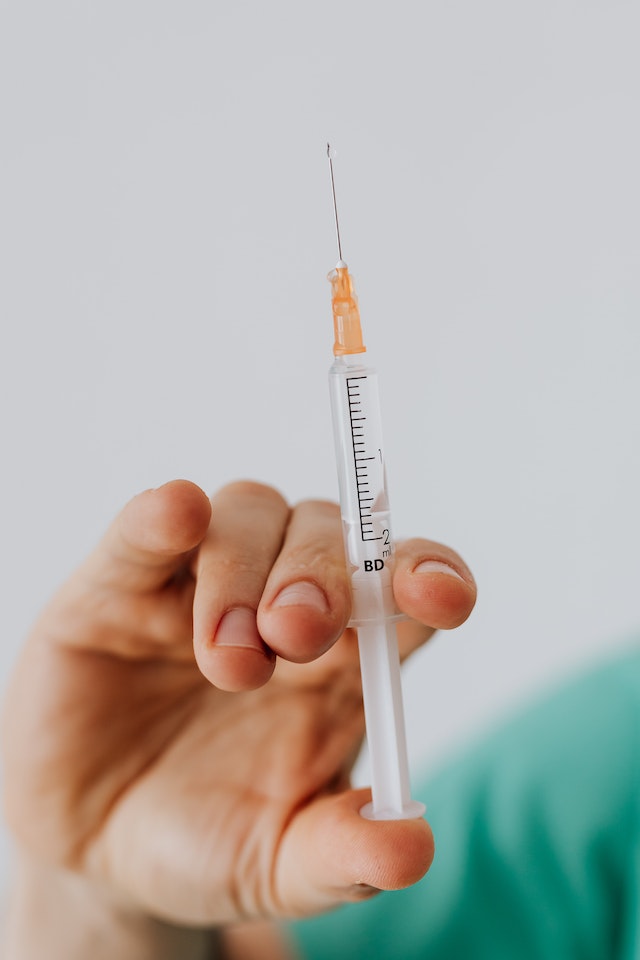Call Today to Schedule an Appointment: 212-319-5282
Allergy Shots: What to Expect and How They Work
In this post, we’ll discuss what an allergy shot is, how it works, and what to expect during treatment. If you suffer from allergies, you know how frustrating and disruptive they can be to your daily life. Fortunately, there are effective treatment options available, including allergy shots. Allergy shots, also known as immunotherapy, are a type of treatment that can help reduce and even eliminate allergy symptoms.

What are Allergy Shots?
Allergy shots are a form of immunotherapy that involves injecting small amounts of allergens into the body to help desensitize the immune system. The goal of allergy shots is to help the immune system build up a tolerance to the allergens over time, ultimately reducing or eliminating allergy symptoms. Allergy shots are typically recommended for individuals with moderate to severe allergies that are not effectively managed with other treatments, such as medication or avoidance of allergens.
How Do Allergy Shots Work?
Allergy shots work by introducing small amounts of allergens into the body over a period of several months to years. The dose of allergen is gradually increased during this time to help the immune system build up a tolerance to the allergen. The immune system produces antibodies in response to the allergen, which ultimately help reduce or eliminate allergy symptoms.
It’s important to note that allergy shots are not a quick fix for allergies. It can take several months to see improvement in symptoms, and full treatment typically lasts three to five years. However, for many individuals, the long-term benefits of allergy shots are well worth the commitment.
What Are the Different Types of Allergy Shots?
There are two main types of allergy shots: subcutaneous immunotherapy (SCIT) and sublingual immunotherapy (SLIT). SCIT involves injections of allergen extracts under the skin, while SLIT involves placing drops of allergen extracts under the tongue. Both types work by gradually exposing the immune system to small amounts of allergens over time, in order to desensitize the body and reduce allergic reactions.
What to Expect During Allergy Shot Treatment
 Allergy shot treatment typically involves two phases: the buildup phase and the maintenance phase.
Allergy shot treatment typically involves two phases: the buildup phase and the maintenance phase.
During the buildup phase, the dose of allergen is gradually increased over several weeks or months. This allows the immune system to slowly build up a tolerance to the allergen. You will typically receive allergy shots once or twice a week during the buildup phase.
Once you reach the effective dose, you will enter the maintenance phase. During this phase, you will receive allergy shots less frequently, usually once every two to four weeks. The goal of the maintenance phase is to help maintain the immune system’s tolerance to the allergen.
Are Allergy Shots Effective?
Studies have shown that allergy shots can be highly effective in reducing and even eliminating allergy symptoms. One study found that 85% of patients experienced a significant reduction in allergy symptoms after three years of allergy shot treatment.
Allergy shots are particularly effective for individuals with allergies to pollen, dust mites, and animal dander. However, they may be less effective for individuals with food allergies.
Conclusion: Contact an Experienced Allergist for the Best Treatments
Allergy shots can be an effective treatment option for individuals with moderate to severe allergies that are not effectively managed with other treatments. While the treatment process can be lengthy, the long-term benefits can be significant, ultimately improving quality of life for allergy sufferers.
If you are interested in learning more about allergy shots or other allergy treatment options, contact Dr. Boyan Hadjiev, also known as “Dr. Sneeze”, an experienced allergist located in New York City. Dr. Hadjiev and his team at Allergy, Asthma and Sinusitis P.C. provide comprehensive allergy testing and treatment services to help you manage your allergies and improve your quality of life.
Allergy, Asthma and Sinusitis P.C
Boyan Hadjiev, MD
30 East 40th Street
Suite 1200
New York, NY 10016
212-319-5282
Serving all of New York City and the Tri State Area including Zip Codes: Top Allergist NYC Midtown, Chelsea and Clinton: 10001, 10011, 10018, 10019, 10020, 10036 | Gramercy Park and Murray Hill: 10010, 10016, 10017, 10022 | Greenwich Village and Soho: 10012, 10013, 10014 | Lower Manhattan: 10004, 10005, 10006, 10007, 10038, 10280 | Lower East Side: 10002, 10003, 10009 | Upper East Side: 10021, 10028, 10044, 10128 | Upper West Side: 10023, 10024, 10025
